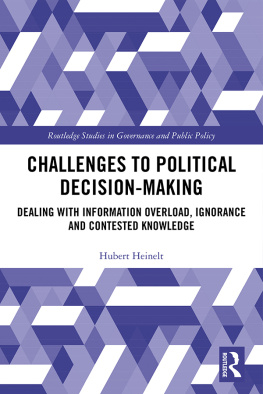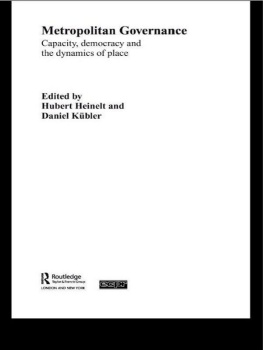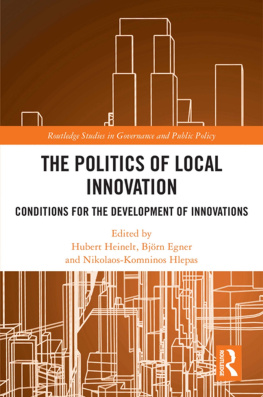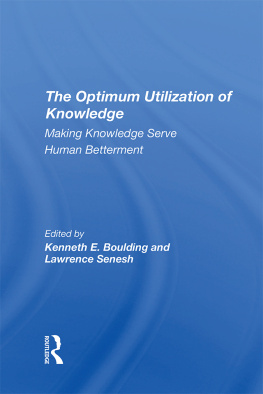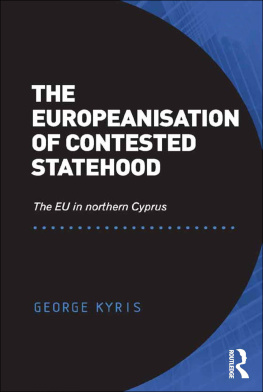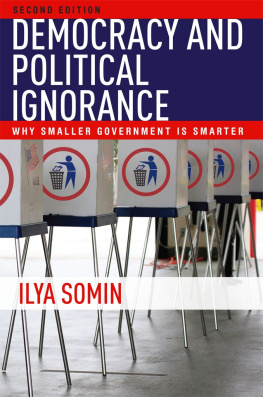Challenges to Political Decision-making
This book analyses the ability of individuals to create meaning through communicative interaction and of what seems to constrain and enable actors in taking collectively binding political decisions.
The book examines why, in some contexts, individuals consider something as evident and relevant for their action while others perceive them as nonsense or simply as fake news. As such, the book follows a research perspective based on a concept emphasizing that the core function of knowledge is related to the selection and integration of data and other information which give them substance. Taking an interpretive political science perspective to knowledge, the book overcomes particular deficiencies of policy learning concepts where the development of an understanding of reality is thematized in a way that supposedly decrypts everyday processes through which individuals understand reality and (re)orient their actions to intersubjective processes. To better understand these intersubjective processes, communicative mechanisms are worked through where knowledge claims are selected and integrated.
This book will be of key interest to scholars and students of political science and policy analysis and more broadly, to sociology and social theory, geography, planning, philosophy, communication studies, and governance studies.
Hubert Heinelt is Professor of Political Science at the Technische Universitt Darmstadt, Germany, and Advisory Professor at the Tongji University, Shanghai.
Routledge Studies in Governance and Public Policy
Frontline Delivery of Welfare-to-Work Policies in Europe
Activating the Unemployed
Edited by Rik van Berkel, Dorte Caswell, Peter Kupka and Flemming Larsen
Decentring Health Policy
Learning from British Experiences in Healthcare Governance
Edited by Mark Bevir and Justin Waring
Decentring Urban Governance
Narratives, Resistance and Contestation
Edited by Mark Bevir, Kim McKee and Peter Matthews
Hybrid Public Policy Innovations
Contemporary Policy Beyond Ideology
Edited by Mark Fabian and Robert Breunig
Semiotic Analysis and Public Policy
Connecting Theory and Practice
Christopher L. Atkinson
International Health Worker Migration and Recruitment
Global Governance, Politics and Policy
Nicola Yeates and Jane Pillinger
Challenges to Political Decision-making
Dealing with Information Overload, Ignorance and Contested Knowledge
Hubert Heinelt
For more information about this series, please visit: www.routledge.com/Routledge-Studies-in-Governance-and-Public-Policy/book-series/GPP
Challenges to Political Decision-making
Dealing with Information Overload, Ignorance and Contested Knowledge
Hubert Heinelt
First published 2019
by Routledge
2 Park Square, Milton Park, Abingdon, Oxon OX14 4RN
and by Routledge
52 Vanderbilt Avenue, New York, NY 10017
Routledge is an imprint of the Taylor & Francis Group, an informa business
2019 Hubert Heinelt
The right of Hubert Heinelt to be identified as author of this work has been asserted by him in accordance with sections 77 and 78 of the Copyright, Designs and Patents Act 1988.
All rights reserved. No part of this book may be reprinted or reproduced or utilized in any form or by any electronic, mechanical, or other means, now known or hereafter invented, including photocopying and recording, or in any information storage or retrieval system, without permission in writing from the publishers.
Trademark notice: Product or corporate names may be trademarks or registered trademarks, and are used only for identification and explanation without intent to infringe.
British Library Cataloguing-in-Publication Data
A catalogue record for this book is available from the British Library
Library of Congress Cataloging-in-Publication Data
A catalog record has been requested for this book
ISBN: 978-0-367-02752-0 (hbk)
ISBN: 978-0-429-39800-1 (ebk)
Typeset in Times New Roman
by Wearset Ltd, Boldon, Tyne and Wear
For
Silvia,
Marie-Sophie,
Sebastian, Jasmin, Clara and
Alexander
Contents
Current positivist approaches to governance [] stress topics such as power-dependence, the independence of networks, the relationships of the size of networks to policy outcomes and the strategies by which the centre might steer networks. To decentre governance is, in contrast, to focus on the social construction of policy networks through the ability of individuals to create meaning.
(Bevir and Rhodes 2006: 75)
In this book, an attempt is made to comprehend the ability of individuals to create meaning through communicative interaction or in other words: to make sense of what seems to constrain and enable them in taking collectively binding decisions. This research perspective refers to a concept of knowledge emphasizing that the core function of knowledge is related to the selection and integration of data and other information which give them particular relevance. Knowledge in this sense is (with reference to Berger and Luckmann 1966 as well as Schtz 1976) always connected with processes of creating meaning and a resulting capacity to act. Therefore, the book addresses the effective intersubjective treatment of the question on which knowledge collectively binding decisions should be based (Saretzki 2007: 119120). This question arises inevitably whenever these decisions have to be taken. From this perspective knowledge is from the outset a matter for politics [] because it is itself produced in highly political processes that instantiate particular versions of what is to be governed, how and by whom in different policy domains (Carmel 2017: 772).
This concept of knowledge has been taken up and further developed by a German political science approach to knowledge (Wissenspolitologie).1 The book aims to connect this approach to international discussions and thereby make it accessible to a broader audience.
According to this school of thought, communicative interactions in policy making can neither be reduced to conflicts of interest and power nor to struggles over particular knowledge claims and assumptions of appropriateness without considering these conflicts. Instead, for the development of interests, it is necessary to comprehend what is perceived in a given context as achievable and desirable which points to the necessity of developing causal assumptions and normative orientations. Moreover, the exercise of power is subjected to a double test, at least in democratic political systems (Rb 2006b: 347). On the one hand, it must be demonstrated that the exercise of power is actually effective on the basis of the causal assumptions which have been made, and, on the other hand, the legitimacy of the exercise of power must be demonstrated with reference to the normative aims that are to be reached by the exercise of power. However, interests and power developed in this way have effects on communicative interaction in political conflicts which means that these do not take place in a sphere free of interests and power.
After this brief outline of this approach to knowledge it should be clear that the proponents of it are part of the broad spectrum of ideational scholars. However, instead of stating that ideas matter, its proponents argue that knowledge matters. Nevertheless, the latter would agree that knowledge matters because it gives:


